Paul Holohan on Why Coaching Education is Important and the New Senior A Coaching License Self-Reflection
Being the best you can be and inspiring others to be their best requires dedication, skill and intelligence — a good education helps too. There has never been a stronger push for coaches to continue their coaching education as there is now. The numerous components of a coach are changing as the demands of the job is redefined — and new practices are developed to help high level players reach their potential.
U.S. Soccer has set forth an aggressive educational program and licensing structure. NSCAA has also launched a new program and coaching education is the new hot topic. Here is the inside scoop on one coach’s journey to the top of the educational ladder.
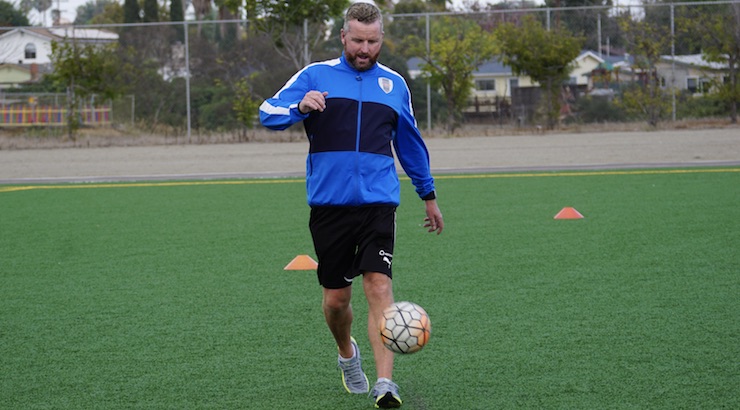
Albion SC’s Director of Academy, Paul Holohan is one of the few high level youth soccer coaches selected to be a participants at U.S. Soccer’s National Coaching School and to take his Senior A license. Never satisfied to just rest on his laurels or be complacent, Holohan focuses on what he can achieve.
As a youth soccer coach, Holohan inspires his players to work hard and reach beyond what they think is their potential. Not one of the world’s quietest soccer coaches on the sidelines of a youth soccer match, Holohan’s elite players all know that he is amazingly dedicated to helping each of them achieve their individual goals.
SoccerToday spoke with Albion SC Director of U.S. Development Academy Paul Holohan on the benefits of receiving U.S. Soccer’s new Senior A License and the necessity of self-reflection as an instructor in youth soccer.
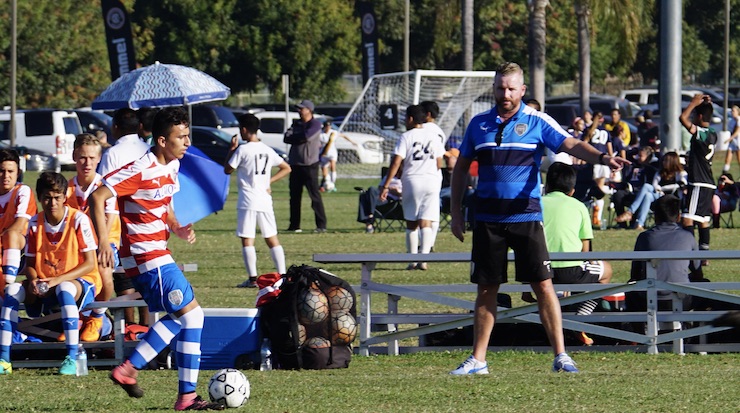
Related Article: Albion SC’s Paul Holohan Oversees Development Academy
Diane Scavuzzo: What U.S. Soccer coaching license are you working on?
Paul Holohan: U.S. Soccer has brought a whole new licensing process. I got my A license eight years ago. I am now going for my Senior A license now.
Diane Scavuzzo: Why do you believe continuing education is essential to being a good coach?
Paul Holohan: The game is changing so much — it just shows by what they are doing now.
It used to be you would go to train for your license in 10 days and then you did courses on the field. Now it’s over six months — with a lot more off the field work and self-reflection.
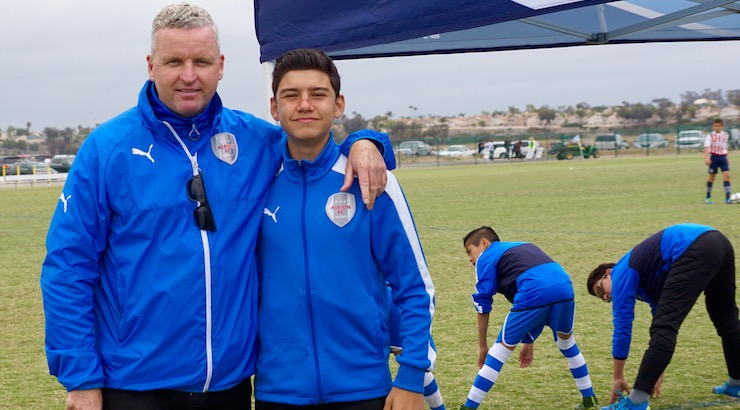
Diane Scavuzzo: Why do you think self-reflection is a part of coaching?
Paul Holohan: You are always trying to be better.
If you’re not growing as an individual then you’re dead.
I think as a coach you always have to see if you’re doing the right thing. Are you teaching the right thing? Did I teach properly today? Did I do a good job today? Did I give everything I could today on the soccer field?
I think if you ask yourself those questions all the time then you’re always going to get better. That’s what I believe this whole new Senior A license is all about. It’s about being a better individual. If you’re a better individual than you’re a better coach.
I think the new way of thinking is clear — all the top coaches in America know the X’s and O’s. They all can coach soccer and draw on a board. Now, being a successful coach has more to do with the self-reflection and helping guide the players rather than just telling them where to stand.
It’s a whole different philosophy now with Jürgen Klinsmann and his new staff. It is a great new direction.
Diane Scavuzzo: Do you think there are coaches that believe they know it all and would rather not continue their coaching education?
Paul Holohan: Yes. There are absolutely coaches out there that think coaching youth soccer has always been done a certain way and that it should stay that way forever. That way of thinking is not correct. Players are different than twenty years ago. Society is different than twenty years ago. You have to be able to change with the times. You are dealing with a different kind of person now than you were twenty years ago.
Diane Scavuzzo: What are the differences?
Paul Holohan: Our youth soccer players are different — they are so high-paced. With all the social media — everything is instant, they want it right now.
Maybe the work ethic of the kids is a bit different now too. So your teaching would have to be different. When I was young, people were working at 16, which is not the case now.
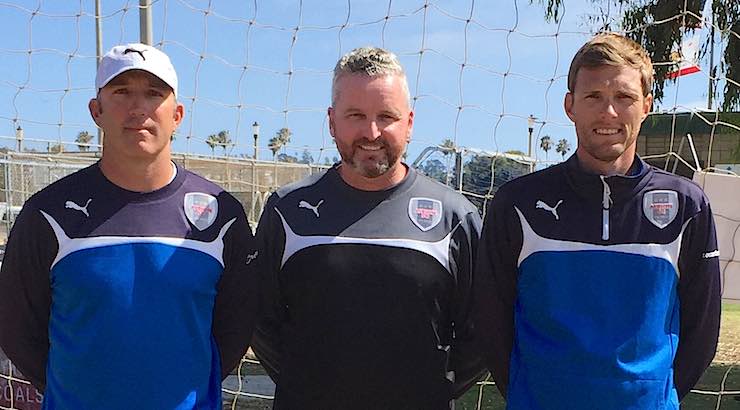
Diane Scavuzzo: When did you first become a coach?
Paul Holohan: When I left Boston College, I played for a little while before coming out to San Diego. I always wanted to get into coaching and that was 1999. I then worked for Derrick Armstrong with San Diego Nomads. So, that’s nearly 17 years ago and I’ve besides coaching youth soccer, I have worked at the professional level, D1, D2, San Diego State and UCSD.
Diane Scavuzzo: What would you say to coach with an E License? Why should they keep going?
Paul Holohan: Well, the Federation and the US Development Academy are mandating that the Director of Academies has to have an A License — so if a young youth coach wants a future in this business, he or she better think about continuing education.
This course I am in now — the Senior A — had 250 possible applicants and they picked the top 30 coaches in America. I am very proud to be one of those coaches in the course.
Diane Scavuzzo: Why do you think they picked you?
Paul Holohan: If you want to work in soccer and U.S. Soccer is the governing body — and, if you want to be the best, you’re going to have to take this licensing to work in this environment.
For you to say that you already have an A License and think that you will be fine, then you should think again And, you should want to take this course. It’s like a four-year degree.
Does this mean you will get a better job right away? Probably not, but when a coach shows they have the discipline to go through the new licensing, then that is what potential employers are looking for.
Diane Scavuzzo: What about the cost of the U.S. licensing program?
Paul Holohan: It is extremely expensive. But so is a masters degree.
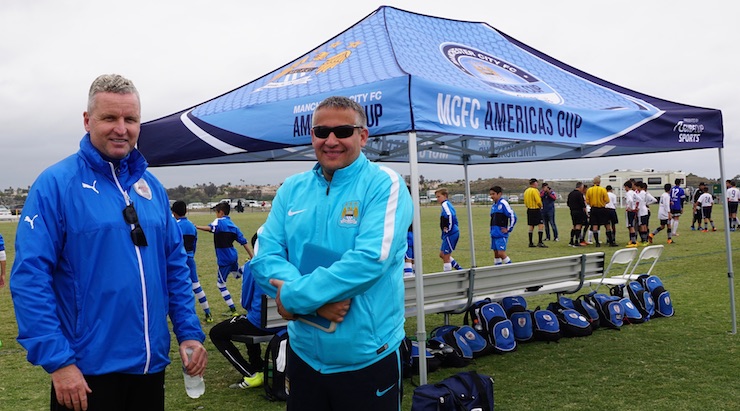
Diane Scavuzzo: Don’t you think you make more money if you have a higher license as a coach?
Paul Holohan: Yes, you’ll make money — but you’re not going to be able to get a job at a top club without continuing your education. Top clubs now will be asking for A licenses in order to be director of a club and a B License to coach for the academy.
Being a coach for 20 years is not what it’s about anymore. It’s not about the X’s and O’s anymore. That is a given. You now learn how to manage players — how to manage people.
Diane Scavuzzo: How about learning how to manage parents?
Paul Holohan: Yes, but all joking aside, the course teaches you how to effective plan out your season. And teaches you to ask yourself questions — constantly.
Are you doing the right things? And then when you do all that, self-reflect and ask yourself if what you are doing is right – or how could it be better? Really be honest with yourself and change then if it’s not right.
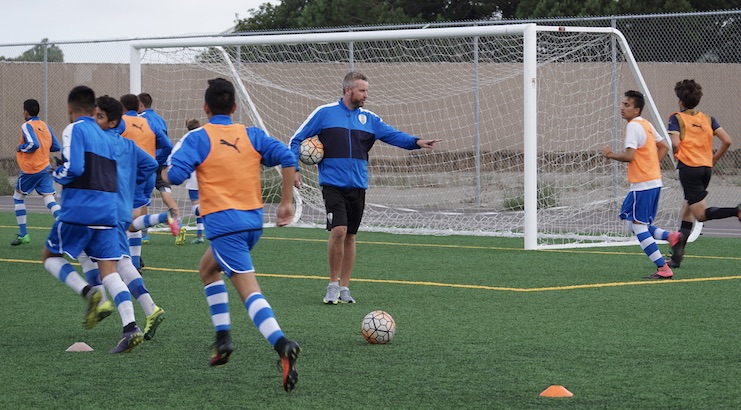
The U.S. Soccer Coaching Department’s coaching education is more than the X’s & O’s. Player development is far more advanced that just developing a player’s technical abilities. Being a great coach and a great player both require a thinking soccer brain and a deep understanding of the beautiful game — and that is the focus at the higher levels of training at U. S. Soccer.
It is obvious; youth soccer coaches need to take continuing education seriously; instructing beyond the X’s and O’s is critical.





